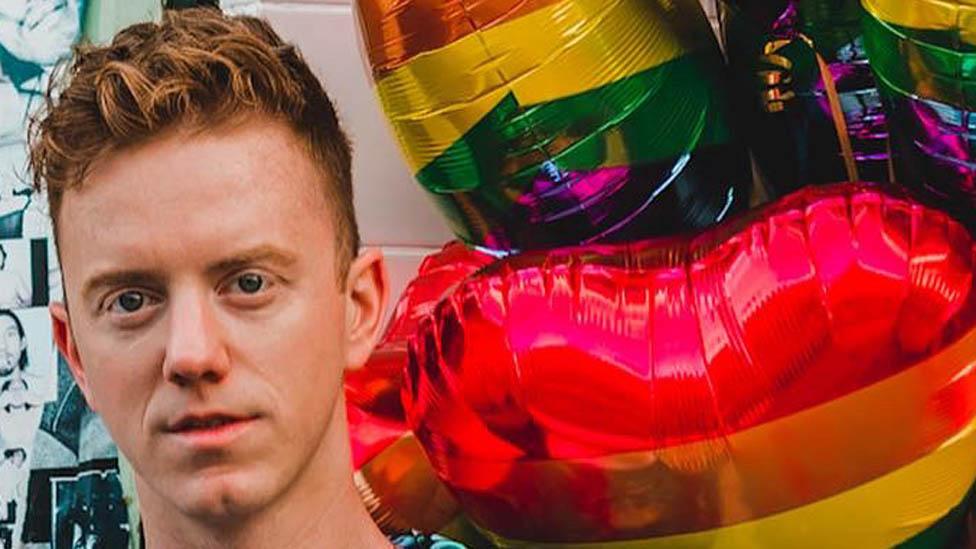QUB: Call for apology over gay aversion therapy
- Published
John was sent for aversion therapy at the Department of Mental Health at Queen's during the 1960s
A leading Queen's University academic has called on the institution to release more information on its historical involvement in electrical aversion therapy on gay men.
BBC News NI previously interviewed a student who was shown pictures of naked men and given electric shocks if he was aroused.
It took place during the late 1960s and early 1970s.
Queen's has expressed regret for the use of such aversion therapy.
However Phil Scraton, an emeritus professor in the school of law, said this was "insufficient" and a public apology was necessary.
He said: "It should reveal the scope and detail of all experiments conducted whether or not they involved electric shocks.
"While the university today should not be held accountable for historic failings, it should make a full public apology."
Prof Scraton had a high profile role in leading the Hillsborough Independent Panel, which investigated how 96 people died following a crush at Sheffield Wednesday's football stadium on 15 April 1989.
His postgraduate teaching at Queen's included a masters' class focusing on gender, sexuality and violence.
He was speaking after a man told BBC News NI how in the late 1960s he was referred to the department of mental health at Queen's University for electrical aversion therapy, with sessions taking place at Belfast City Hospital.
Prof Scraton said: "Queens and any other organisations involved should identify the inter-departmental scope and longevity of the research projects, their ethical approval and their financing."
In response, a spokesperson for Queen's said: "The university has no records of this therapy taking place here or elsewhere on the university's behalf. Research data from this era were not kept for more than 15 years.
"The university regrets that this method was ever used by any organisation in any situation."
Electrical aversion therapy
John, not his real name, said he had grown up in the 1950s in a rural Northern Ireland town and was initially referred to counselling at a local hospital.
However, when he studied at QUB in the late 1960s, he said he was referred to the department of mental health at the university.
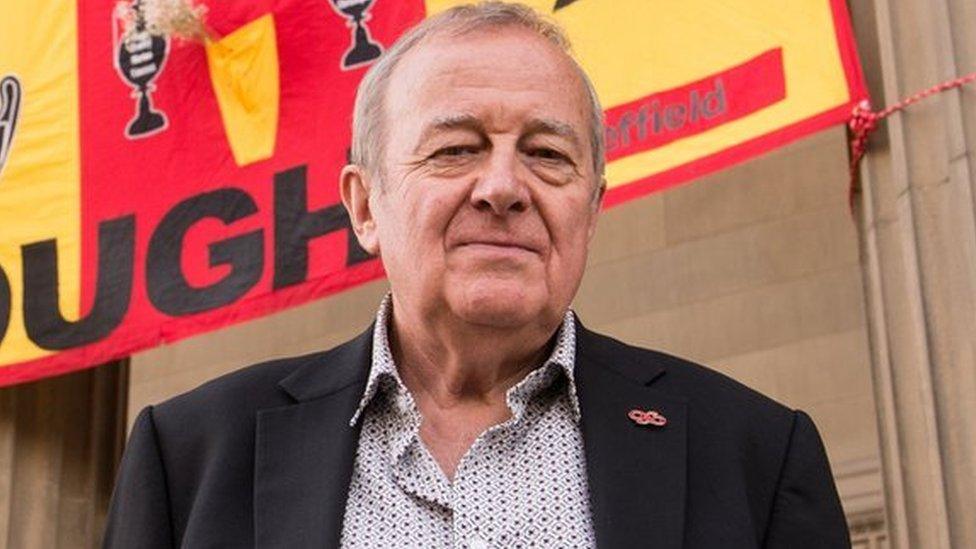
Phil Scraton is a professor of criminology at Queen's University Belfast
The aim of the therapy was for him to associate homosexual desire with pain or unpleasant feelings.
John identified a psychologist, who was an academic at Queen's University at the time, as the person responsible for his aversion therapy.
BBC News NI has accessed a research paper on electrical aversion therapy published in the Ulster Medical Journal in 1973 which was co-authored by the psychologist.
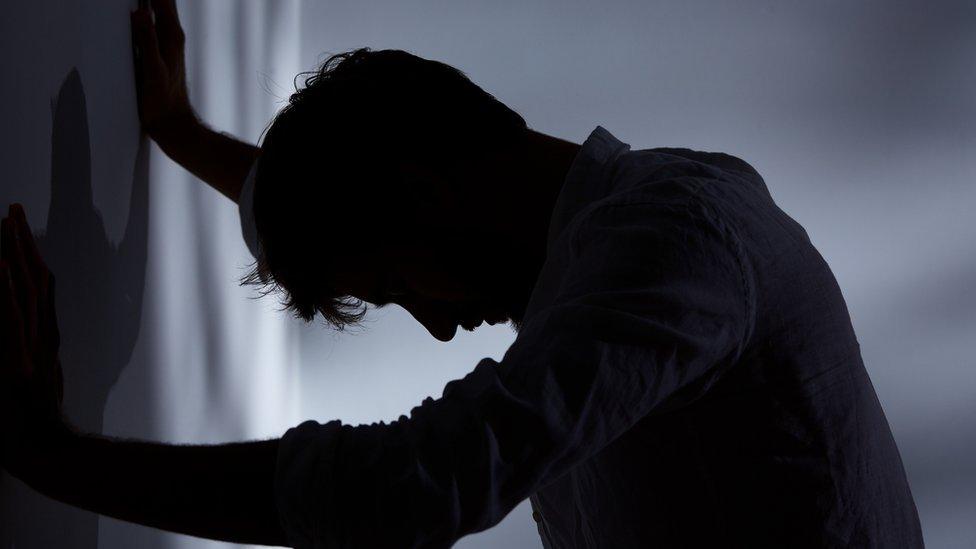
The paper also lists a number of academic authors from QUB's departments of mental health, social studies and psychology. It stated that the use of electrical aversion therapy was rare by that stage.
BBC News NI also asked the Belfast Trust for more details regarding Belfast City Hospital's involvement in electric aversion therapy in the late 1960s and early 1970s.
A spokesperson for the trust said it did not hold records going back to this period, but it did "express regret to those who were subjected to this horrendous ordeal".
'Corrective treatment'
Research from King's College London estimates that in the UK approximately 1,000 people received this type of treatment. It had been mostly abandoned by the mid-1970s.
Professor Scraton said the 1960s and 1970s was a period of open hostility for homosexuals throughout the UK, with many physically attacked.
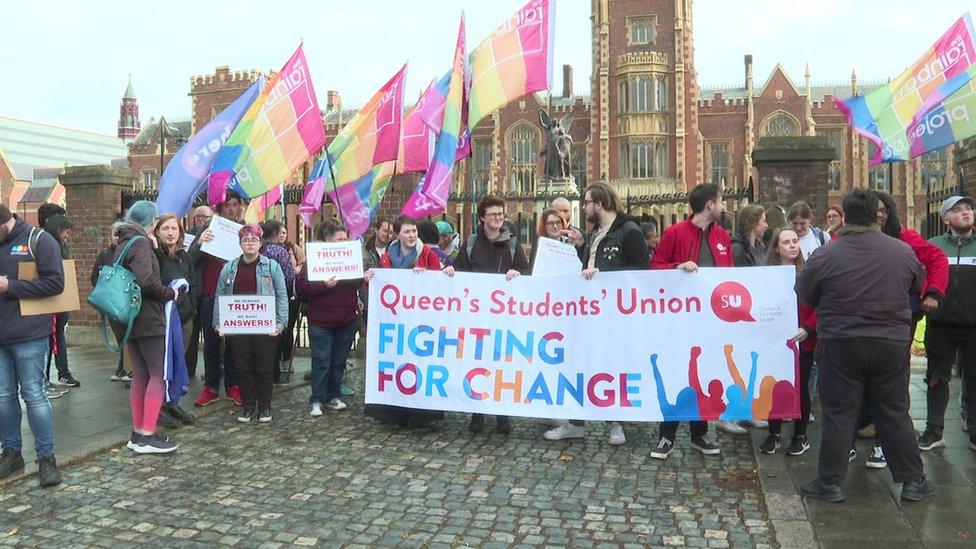
Queen's Student Union and the Rainbow Project held a protest outside the university in early October
He said: "Rejected by schools, churches, medical services and, often, their families as having a pathological disorder, they suffered considerable personal duress.
"In this hostile climate it was understandable that they accepted the offer of 'corrective treatment' from psychologists and psychiatrists whose research appears to have been founded on beliefs and ideology rather than science.
"In this context Queen's, among other universities, administered electric shocks as one form, among others, of experimental corrective intervention.
"Given that some participants are still alive it is appropriate that they hear a public apology alongside disclosure of the methods used and their justification at the time."
On 9 October 2019 the Rainbow Project and Queen's Students' Union held a protest outside the university in response to revelations around the use of electric aversion therapy.
The spokeswoman for QUB also said: "Queen's University is fully committed to creating and sustaining an environment that values diversity and strongly supports our LGBT+ community.
"Our comprehensive equality and diversity policy reflects the importance Queen's University places on the promotion of equality of opportunity."
- Published30 September 2019
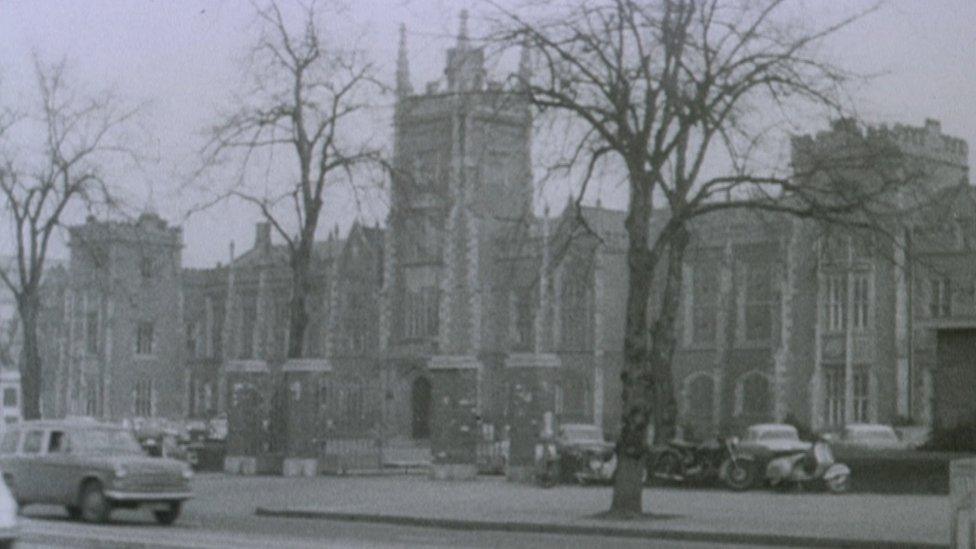
- Published3 July 2018
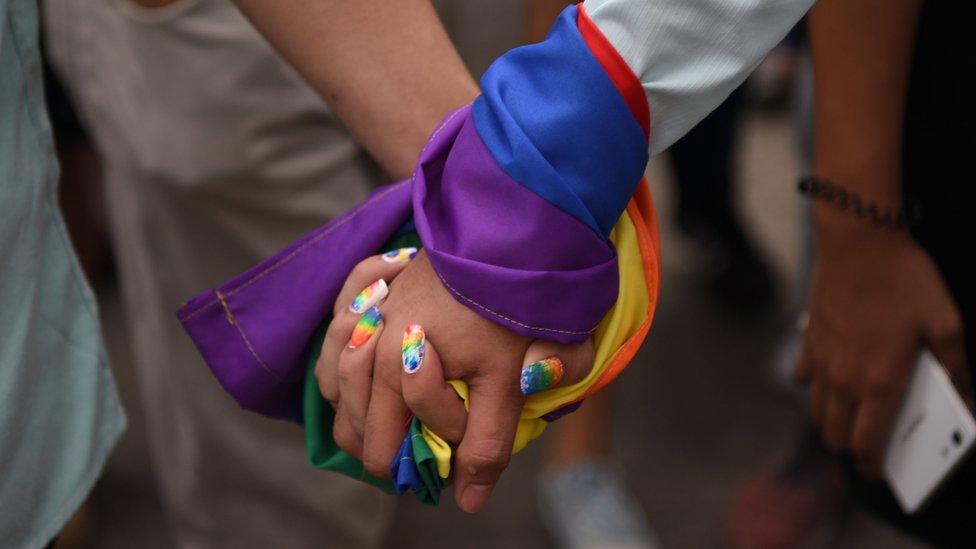
- Published16 September 2019
